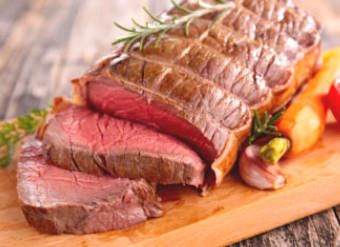
L-carnitine is a natural amino acid derivative that is often used as a weight loss supplement.
L-carnitine plays an important role in the production of energy by transporting fatty acids into the mitochondria of cells .
The mitochondria act like motors in cells, burning these fats to help create usable energy.
Our bodies can completely produce L-carnitine thanks to the amino acids lysine and methionine.
In order for the body to produce enough of this amount, vitamin C is required .
In addition to self-production, L-carnitine can be absorbed in small amounts by eating animal foods such as meat or fish .
Vegetarians or certain genetic problems cannot produce or not produce enough L-carnitine. This means this is a "conditionally essential" nutrient .
Summary: L-carnitine is an amino acid that the body can produce or absorb by eating animal meat. It is also available as a supplement
Types of Carnitine
L-carnitine is the biological standard activity of carnitine - this substance is found in the body, in food and most supplements.
Here are some other carnitine types:
- D-carnitine: This inactive type can cause carnitine deficiency in the body by inhibiting absorption of other more useful forms .
- Acetyl-L-Carnitine: often referred to as ALCAR, this is the most effective type for the brain. It is used to treat neurological diseases like Alzheimer's.
- Propionyl-l-carnitine: This type is most suitable for blood flow problems such as peripheral vascular disease or high blood pressure. It works through nitric oxide production, which helps improve blood flow .
- L-carnitine L-Tartrate: This is one of the most common types found in sports supplements thanks to its fast absorption rate. It helps improve sports-related problems such as muscle pain and recovery .
For most people, acetyl-L-carnitine and L-carnitine are the two most effective treatments for general treatment. However, it is recommended to choose the type that best suits the needs and purposes of each person.
Summary: Although L-carnitine is the standard, we can still use other types such as acetyl-L-carnitine, propionyl-L-carnitine and L-carnitine L-tartrate.
The role of L-carnitine in the body

The main role of L-carnitine in the body is to work with mitochondrial function and energy production .
In cells, L-carnitine helps transport fatty acids into the mitochondria, where they are used to burn energy.
About 98% of L-carnitine in the body is found in muscles, along with small amounts in the liver and blood .
For general health, L-carnitine has many benefits for mitochondrial function, as well as helping the mitochondria grow and be healthy, it also plays a major role in preventing illness and health in old age .
Recent research has shown the potential benefits of different types of carnitine, which can be used for heart and brain disease problems .
Summary: The main role of L-carnitine is to transport fatty acids into mitochondrial cells to process or "burn" them to generate energy.
L-carnitine for weight loss

In theory, use L-carnitine as one Weight loss supplements is grounded.
Because L-carnitine helps move many fatty acids into cells to burn them to create energy, it can be understood that it helps increase the ability to burn fat and weight loss .
However, the human body is complex, the following research results include a combination of both humans and animals .
In one study, 38 women were divided into two groups. One group used dietary supplements containing L-carnitine, while the other group did not. Both have 4 sessions a week for 8 weeks.
The researchers found no difference in weight loss between the two groups, although 5 participants taking L-carnitine had nausea or diarrhea .
Another human study followed the effect of L-carnitine on the amount of fat that participants burned during a 90-minute bicycle session.
Researchers have found that taking L-carnitine supplements does not increase the amount of fat burned .
However, an analysis of 9 studies showed that participants lost an average weight of more than 1.3 lbs (1.3 kg) when taking L-carnitine. Most of these studies focused on obese or elderly people .
More research is needed to confirm the benefits of L-carnitine for younger and more active groups. L-carnitine may help to lose weight for obese people and the elderly, but it is necessary to incorporate a reasonable amount of exercise and diet.
Summary: Although L-carnitine's cellular mechanism makes it possible to lose weight, efficacy is often low and studies are mixed.
Influence on brain function

L-carnitine has many benefits for brain function.
Some animal studies show acetyl, acetyl-L-carnitine (ALCAR), which help prevent age-related brain decline and improve memory points .
In human studies, daily use of acetyl-L-carnitine reverses the decline in brain function associated with Alzheimer's disease and other brain diseases .
It has also been shown to have similar effects on brain function in elderly people without Alzheimer's disease and other brain-related problems .
In certain cases, L-carnitine may even help protect the brain from cell damage. In one study, an alcoholic drank two grams of acetyl-L-carnitine daily for 90 days. The results showed a significant improvement in the measurement of brain function .
More research will be needed to understand the long-term benefits of L-carnitine in healthy people without illness or brain function problems.
Summary: L-carnitine, especially acetyl-L-carnitine, has positive effects on brain function and other related diseases.
Other health benefits
Here are some health benefits thanks to L-carnitine supplementation.
Heart health
Several studies have demonstrated the potential benefits of this substance for reducing blood pressure and inflammation associated with heart disease
In one study, participants took 2 grams of acetyl-L-carnitine daily. It helps reduce almost 10 systolic blood pressure points, an important indicator of cardiovascular health and risk of disease .
L-carnitine has also been shown to improve symptoms for patients with severe cardiac disorders, such as coronary heart disease and chronic heart failure .
A 12-month study has found a reduction in the number of deaths from heart failure for participants taking L-carnitine supplements .
Training achievements

The evidence is inconsistent when it comes to L-carnitine's effects on sports activities.
However, some studies have shown some small benefits when participants take L-carnitine supplements in more doses, or for longer periods of time .
The benefits of L-carnitine may not be direct and will take weeks or months to show clearly. This is different from supplements such as caffeine or creatine, which can directly enhance the exercise effect.
L-carnitine has the following benefits:
- Rehibilitate: May help to improve recovery when exercising .
- Supply oxygen to muscles: Help increase oxygen supply to muscles .
- Endurance: Increases blood flow and produces nitric oxide, which helps slow down "burning" and reduce fatigue .
- Muscle pain: helps relieve muscle pain after exercise .
- Production of red blood cells: Help increase the production of red blood cells, transport oxygen in the body and muscles .
Type 2 diabetes and insulin resistance
L-carnitine has also been shown to reduce symptoms of type 2 diabetes and associated risk factors .
In a study with patients with type 2 diabetes, L-carnitine improved blood sugar response to a high-carb diet. This blood sugar reaction is an important manifestation of the risk of diabetes and overall health .
L-carnitine also helps fight diabetes by strengthening a key enzyme called AMPK, which helps the body improve its ability to use carb .
Summary: Research shows that L-carnitine has many benefits for physical activity and helps treat problems related to heart disease and type 2 diabetes.
Safety and side effects
Like most natural supplements, L-carnitine seems to be quite safe and has no serious side effects when used properly and as directed.
One study examined the safety of L-carnitine by asking participants to take 3 grams a day for 21 days. A comprehensive blood count sheet has been applied for each person during the study period, resulting in no negative effects .
In a study of the safety of L-carnitine, taking about 2 grams per day is safe for long-term use. However, it still has some mild side effects, including nausea and stomach discomfort .
For most people, taking 2 grams per day is relatively safe and does not have serious side effects.
Summary: Taking L-carnitine from 2 grams or less daily is good and safe for most people. However, there are still some cases of nausea and gastrointestinal side effects, but no significant problems have been found.
Top foods contain L-carnitine

Meat and fish contain small amounts of L-carnitine .
The best sources of L-carnitine:
- Beef: 81 mg / 3 oz (85 grams).
- Pork: 24 mg / 3 oz (85 grams).
- Fish: 5 mg / 3 oz (85 grams).
- Chicken: 3 mg / 3 oz (85 grams).
- Milk: 8 mg / 8 oz (227 ml).
Interestingly, food sources containing L-carnitine have a better absorption rate than functional foods.
According to one study, 57-84% of L-carnitine is absorbed by using food, compared with only 14-18% by taking functional foods .
As mentioned earlier, the human body can also produce this substance naturally thanks to its amino acid methionine and lysine if its reserves are low.
For these reasons, only L-carnitine supplements should be used in special cases - for example, to treat illnesses or health problems.
Summary: The main food sources contain L-carnitine including meat, fish and some other animal products such as milk. A healthy person can also produce enough L-carnitine inside the body.
Should use Functional foods containing L-carnitine?
L-carnitine levels are affected by the amount of food the body consumes and produces itself.
For this reason, L-carnitine levels are usually lower in vegetarians and vegetarians, because they do not eat animal foods .
Therefore, vegetarians can take L-carnitine supplements. However, no research has been done on this specific target group.
Older people may also benefit from L-carnitine supplements. Research shows that the level of substance quality tends to decrease when people get older .
In one study, taking 2 grams of L-carnitine reduced fatigue and increased muscle function in the elderly. Other studies show that acetyl-L-carnitine also enhances health and brain functions when the body is old .
In addition, people with cirrhosis and kidney have a higher risk of L-carnitine deficiency. Therefore, taking supplements will be very helpful .
Summary: Specific target groups may benefit from L-carnitine supplements. These groups include the elderly, those who have little or no animal foods such as meat and fish.
Recommended for L-carnitine dosage

The standard dosage of L-carnitine is between 500-2000 mg daily.
Although the dosage used varies for each study, below is an overview of the usage and dosage for each type of L-carnitine:
- Acetyl-L-Carnitine: This is the best type for brain health and function. Dose varies from 600-2,500 mg / day.
- L-Carnitine L-Tartrate: This type is most effective for fitness activities. The dose varies from 1,000-4,000 mg / day.
- Propionyl-L-Carnitine: This is best used to improve blood flow in people with high blood pressure or related health problems. The dosage varies from 400-1000 mg per day.
Based on a research evaluation, up to 2,000 mg (2 grams daily) seems to be a safe dose for long-term use and is effective for most forms of L-carnitine.
Summary: Although the dose of L-carnitine is recommended for different subjects, taking about 500-2,000 mg (0.5-2 grams) seems safe and effective.
Summary of the article
L-carnitine is best known for its fat burning effect, resulting in mixed studies. This substance will not help to reduce a significant amount.
Most studies support the use of this substance for health problems, brain function and prevention. Supplements are also beneficial for the elderly and vegetarians - those with low L-carnitine levels.
In all types of L-carnitine, acetyl-L-carnitine and L-carnitine are the most common and effective.
